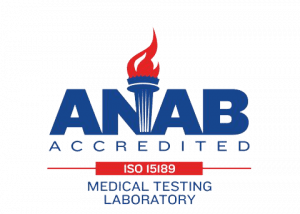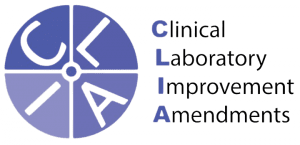Prenatal screening for chromosomal abnormalities, such as Down syndrome, has been transformed by Noninvasive Prenatal Testing (NIPT). Compared to conventional techniques like amniocentesis or chorionic villus sampling, it gives pregnant parents a safer and less invasive option. Even though NIPT has a high level of accuracy, sometimes there are chances of a false positive Down syndrome test.
The causes of erroneous results in NIPT tests for Down syndrome are examined in this article. It’s crucial to understand that no medical test is perfect. Abnormalities and inaccuracies can result in many ways. Here we will explain the NIPT test accuracy and how it can affect the life of pregnant women, especially those with child Down syndrome.
What is NIPT?
Noninvasive prenatal screening, often known as NIPT, is a procedure used to assess the likelihood that a fetus will be born with specific genetic disorders. Small DNA fragments that are floating about in a pregnant woman’s blood are examined by this test. These fragments are known as cell-free DNA (cfDNA) because they are free-floating and not contained within cells, in contrast to most DNA found inside a cell’s nucleus. When cells break down and die, their contents, including DNA, are released into the bloodstream as minute fragments with an average size of fewer than 200 DNA base pairs.
Does the NIPT Test Screen for Down Syndrome Accurate?
NIPT doesn’t have the quality and capability to test for all chromosomal conditions or birth disorders. Most NIPT tests screen for:
- Down syndrome (trisomy 21).
- Trisomy 18.
- Trisomy 13.
Disorders affecting sex chromosomes (X and Y).
As we know, the extra chromosome causes Down syndrome, trisomy 18 and trisomy 13. Screening for sex chromosomes can help predict the sex of the fetus and can also screen for differences in the usual number of sex chromosomes. The most common sex chromosome conditions are Turner syndrome, Klinefelter syndrome, Triple X syndrome and XYY syndrome. Not all NIPT panels evaluate for the same conditions.
Why is Noninvasive Prenatal Testing Done?
Noninvasive prenatal testing helps determine the fetus’s chances of being born with certain chromosomal disorders. Healthcare providers may recommend it if you:
- Have a child with a chromosomal abnormality.
- I have had an ultrasound that shows that the fetus may have an abnormality.
- I have had an earlier screening test that suggests a potential problem.
For pregnant women who were deemed to be at high risk, the American College of Obstetricians and Gynecologists (ACOG) used to advise NIPT. It is currently advised that healthcare professionals offer NIPT to all pregnant patients, regardless of risk. Your obstetrician can suggest diagnostic exams based on the NIPT test results. Whether the fetus has a certain condition can be determined with certainty thanks to diagnostic tests.
NIPT Test and Down Syndrome
Receiving a positive NIPT result for Down syndrome does not always prove the existence of the disorder in the baby, which is in the womb; rather, it raises the possibility. Additional diagnostic procedures, such as amniocentesis or chorionic villus collection, are advised to confirm the diagnosis. In contrast, a NIPT false positive does not necessarily indicate a healthy pregnancy or the chances of a child being free from Down syndrome because false negatives can occasionally occur.
It’s a screening test offered during pregnancy to see if the fetus is at risk for having a chromosomal disorder like Down syndrome (trisomy 21), trisomy 18 (Edwards syndrome) and trisomy 13 (Patau syndrome). The test can also determine the sex of the fetus. It’s done by taking a sample of your blood, which contains DNA fragments from the fetus. DNA makes up a person’s genes and chromosomes and gives healthcare providers a glimpse into the fetus’s genetic makeup. The blood sample is sent to a lab and analyzed for specific congenital disorders. NIPT can’t screen for all chromosomal or genetic conditions.
The NIPT test is called cell-free DNA (cfDNA) screening or noninvasive prenatal screening (NIPS). Remembering that a screening test estimates the likelihood of the fetus having a particular condition is important. It doesn’t diagnose a condition. NIPT testing is optional. Your healthcare provider will provide information about prenatal genetic testing and help you make an informed choice about your options.
How is the NIPT Test Performed?
NIPT is considered non invasive because it requires drawing blood only from the pregnant woman and does not pose any risk to the fetus. NIPT is a screening test, meaning it will not give a definitive answer about whether or not a fetus has a genetic condition. The test can only estimate whether the risk of having certain conditions increases or decreases. In some cases, NIPT results indicate an increased risk for a genetic abnormality when the fetus is unaffected (false positive), or the results indicate a decreased risk for a genetic abnormality when the fetus is affected (false negative). Because NIPT analyzes both fetal and maternal cfDNA, the test may detect a genetic condition in the mother.
There must be enough fetal cfDNA in the mother’s bloodstream to be able to identify fetal chromosome abnormalities. The proportion of cfDNA in maternal blood that comes from the placenta is known as the fetal fraction. Generally, the fetal fraction must be above 4 percent, typically around the tenth week of pregnancy. Low fetal fractions can lead to an inability to perform the test or a false negative result. Reasons for low fetal fractions include testing too early in the pregnancy, sampling errors, maternal obesity, and fetal abnormality.
How to Read NIPT Results for Gender?
Cell-free fetal DNA (cffDNA) fragments are present in maternal blood during pregnancy. This is the fetal fraction of all cell-free DNA in the maternal bloodstream and can be detected early in pregnancy. NIPT is based on the analysis of cell-free fetal DNA found in maternal blood. If Y chromosome DNA sequences in the maternal blood sample are detected, the fetus is classified as male. If no Y chromosome DNA sequences can be detected, one assumes the fetus is female. The use of NIPT for fetal sex determination is considered feasible around gestational week 10.
How Do Doctors Perform a NIPT Test?
Choice DNA Laboratory LLC will draw a sample of your blood for this examination to check for DNA anomalies in the developing fetus. Every cell in your body has its DNA. Your cells continually divide to produce new ones. Tiny DNA fragments are released into circulation when cells break down. A small portion of the fetus’ DNA circulates in your blood during pregnancy. These cell-free DNA, or cfDNA, fragments of fetal DNA are examined by the NIPT.
Your doctor collects a sample of your blood through a vein in your arm. They send this sample to a lab to examine it for particular conditions. You should be aware that it takes approximately 10 weeks for your blood to contain adequate levels of fetal DNA. That’s why the screening isn’t performed until 10 weeks into the pregnancy.
How Accurate are NIPT Tests?
The accuracy of the test varies by the condition it’s checking for. Other factors like being pregnant with multiples, being a surrogate or having obesity can affect NIPT results. NIPT is about 99% accurate NIPT test accuracy in detecting Down syndrome. The test is slightly less accurate for detecting trisomy 18 and 13. Overall, NIPT tests produce fewer false positives than prenatal screenings like the quad screen.
How Much Does the NIPT Test Cost?
NIPT testing costs vary. Choice DNA Laboratory LLC covers most (if not all) of the cost. Check with your insurance provider before testing to be sure. You can pay for the test if you don’t have insurance or your insurance doesn’t cover NIPT tests. Choice DNA Laboratory LLC costs the NIPT almost $1495.Get Excited About NIPT Test – Your Pregnancy, Your Choice
Get Accurate Answers With Our NIPT Test!

Is it Necessary to Take the NIPT Test During Pregnancy?
No, it’s not necessary. It’s a personal choice, and it’s normal to have questions. Choice DNA Laboratory LLC will discuss all your prenatal screening options, including NIPT. Many factors may influence your decision to have NIPT and prenatal genetic testing. If you need help or wish to discuss the screenings in more detail, Choice DNA Laboratory LLC can help you understand the prenatal testing options and what may be a good fit for you.
Is the NIPT Test Worth it?
You must get a noninvasive pregnancy screening or other prenatal genetic test. Choice DNA Laboratory LLC can answer any questions you have. Still, you have to decide how a genetic or chromosomal disorder affects you and your family based on your situation.
The following questions might be helpful to you as you make your decision:
- How will I feel about a positive screening result?
- Would I consider diagnostic tests like amniocentesis or CVS?
- Would I do something different knowing the fetus has a genetic condition or an increased risk for a genetic condition?
- Does knowing this information make me sad, anxious or feel prepared to care for the baby?
- Would knowing this information help my provider(s) care for the baby better?



















